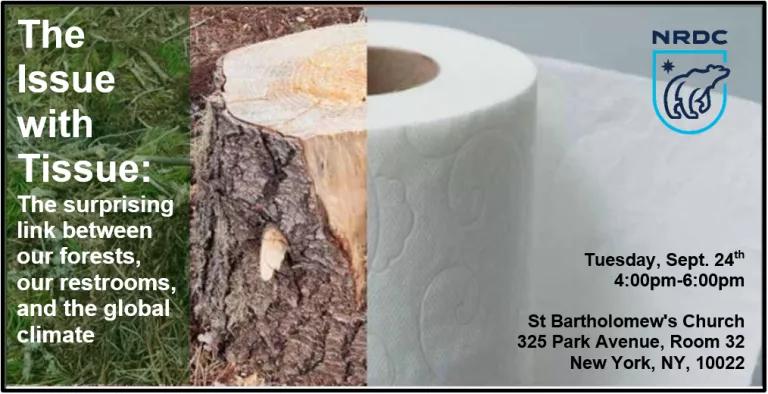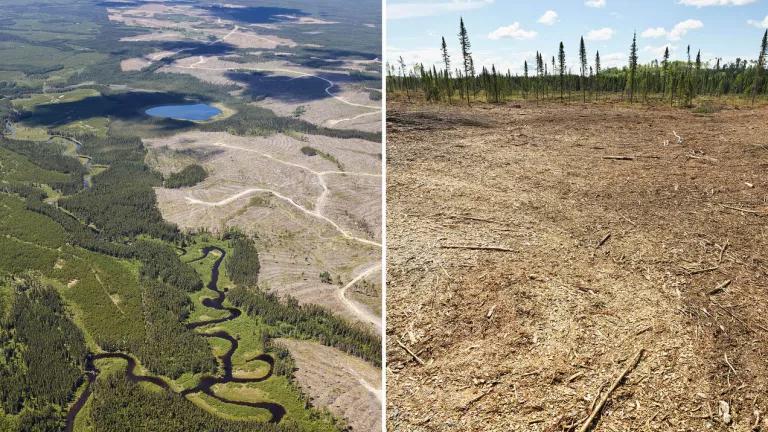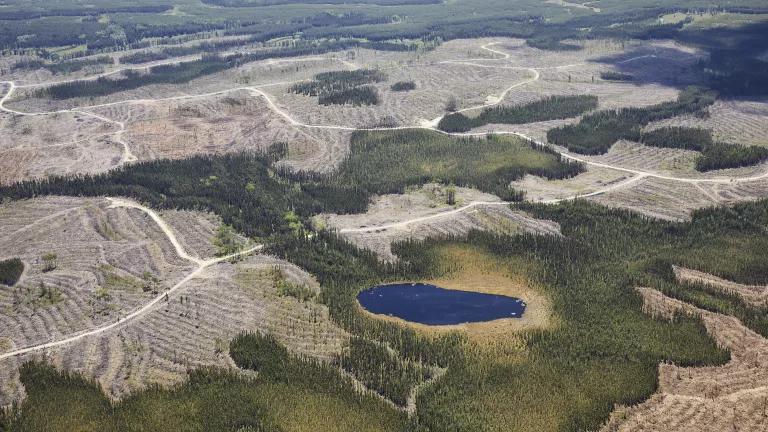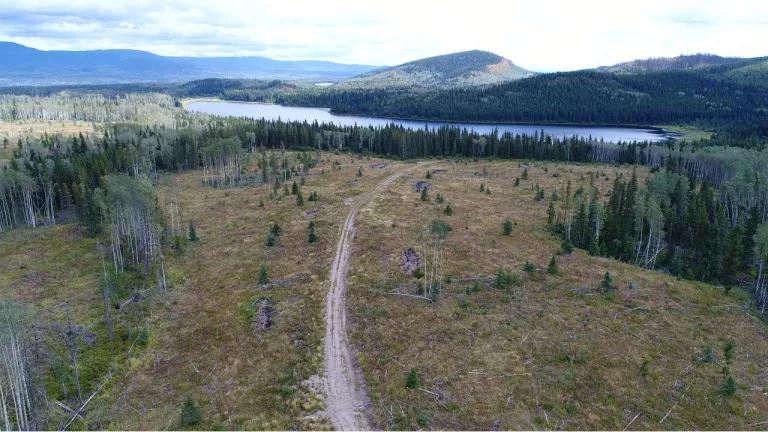During Climate Week, Companies Must Focus on Canada’s Boreal
We must do more to protect intact forests like Canada's boreal for the sake of the climate. Join NRDC for a panel discussion on September 24th in NYC about how U.S. demand for toilet paper and other throwaway tissue products is fueling forest destruction and exacerbating the climate crisis, and what companies and individuals can do to stop the tree-to-toilet pipeline.

Next week is New York Climate Week, a major convening of policymakers, Indigenous leaders, NGOs, and the corporate sustainability world organized around the UN’s Climate Action Summit. At panels, fora, and discussions throughout the week, the attendees will address topics ranging from how we end our reliance on fossil fuels to sustainability in the fashion sector.
But as the fires in the Amazon rage on and youth take to the streets worldwide today to demand that adults do more to solve our climate emergency, it's time for major companies like Procter & Gamble to step up to the plate to reduce their impact on intact forests--one of nature's best climate solutions. Our forest ecosystems are incredibly fragile and vulnerable to industrial disturbance, and as Greta Thunberg notes, natural climate solutions get only a small portion of funding invested in cutting emissions. As part of Climate Week, we must turn our attention to the role American companies play in fueling the destruction of these forests, and we cannot overlook Canada’s intact boreal forest as a key part of the solution to the climate emergency.
A healthy Canadian boreal is vital to fighting climate change, as well as for Indigenous communities and myriad birds and mammals. It is the largest remaining intact forest in the world, and it is Earth’s largest land-based carbon sink, storing the carbon equivalent of nearly twice the world’s recoverable oil reserves in its soil. And it’s being clearcut...for toilet paper.
One million acres of Canadian boreal forest are clearcut every year. American companies are by far the biggest foreign drivers of boreal destruction. Eighty percent of wood exports from boreal provinces go to the United States, feeding our voracious appetite for everything from books to furniture to our homes, and yes, single-use tissue products.
The fact that pristine boreal forest is being turned into toilet paper is an absurd tragedy of American consumption, and illustrative of how even the little things we may not pay attention to in our daily lives have an outsize impact on the homelands of others and on the planet.
And it’s not like we asked for this. Major U.S. companies like Procter & Gamble sold the idea that we need our toilet paper to be the softest many years ago, and they’ve since cited that consumer demand as the main reason they now can’t change their products, despite all the warnings we now have that our planet is in peril.
Marketing by American companies obfuscates the environmental damage done by the products we use. But when we learn of the consequences our purchases have, we vote with our dollars to buy more sustainable products. Since the release of our report, “The Issue with Tissue: How Americans are Flushing Forests down the Toilet,” more than 180,000 people have called on Procter & Gamble to use more sustainable materials for its tissue products, instead of relying on 100% virgin forest fiber. Over 50,000 more have made the same ask of Costco.
On September 24th, NRDC will host a panel highlighting the link between Canada’s boreal, the global climate, and U.S. toilet paper manufacturing. We will underscore the importance of and threats to the Canadian boreal forest. We will highlight both Indigenous and corporate innovations to preserve intact forest areas and the carbon that’s stored in their soils, and show how U.S. tissue manufacturers, and other companies that source from Canada’s boreal don’t have to rely on an outdated and shortsighted paradigm where making stuff requires planetary destruction.
Millions of youth are demanding today that we all throw ourselves into the essential task of saving the planet. Making and selling toilet paper that doesn’t destroy the planet is the least corporate actors can do.
Take Action: Tell Procter and Gamble to stop flushing our forests.



